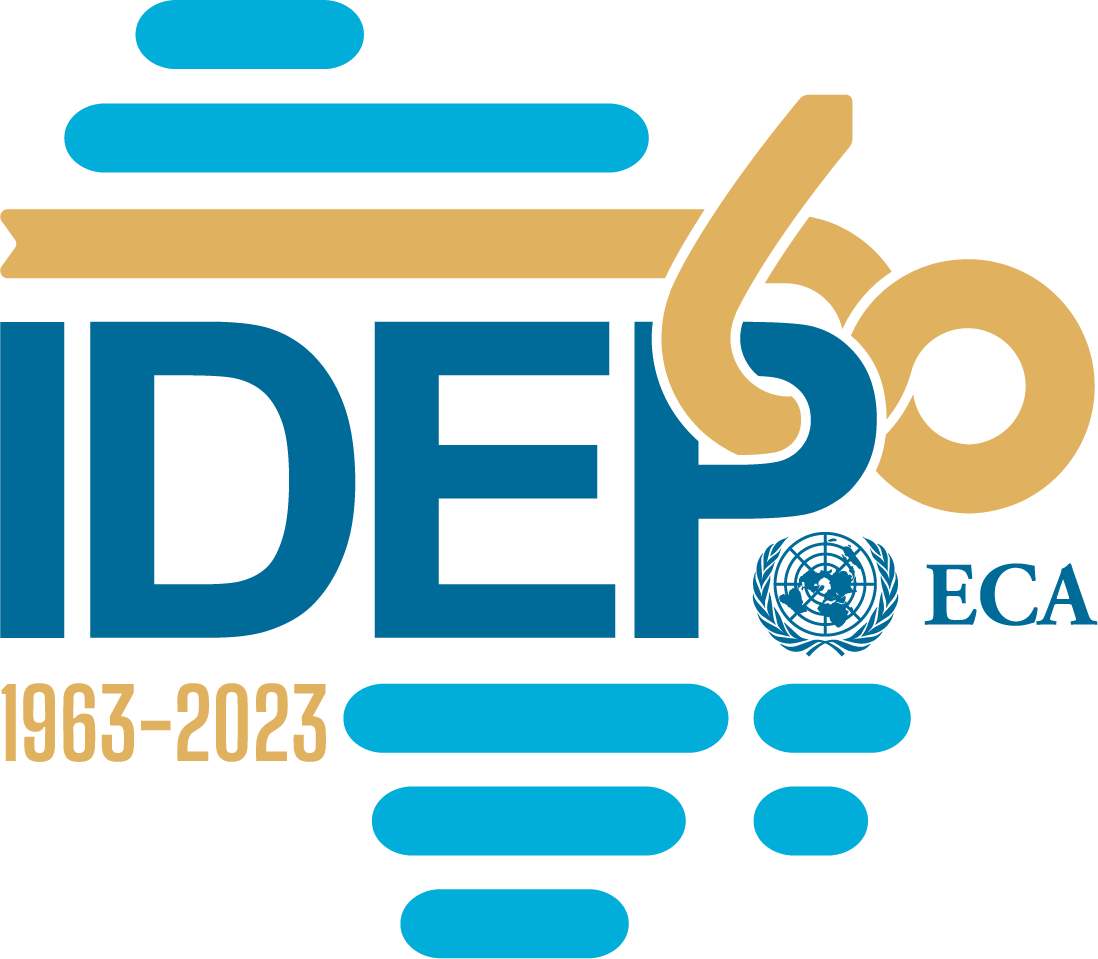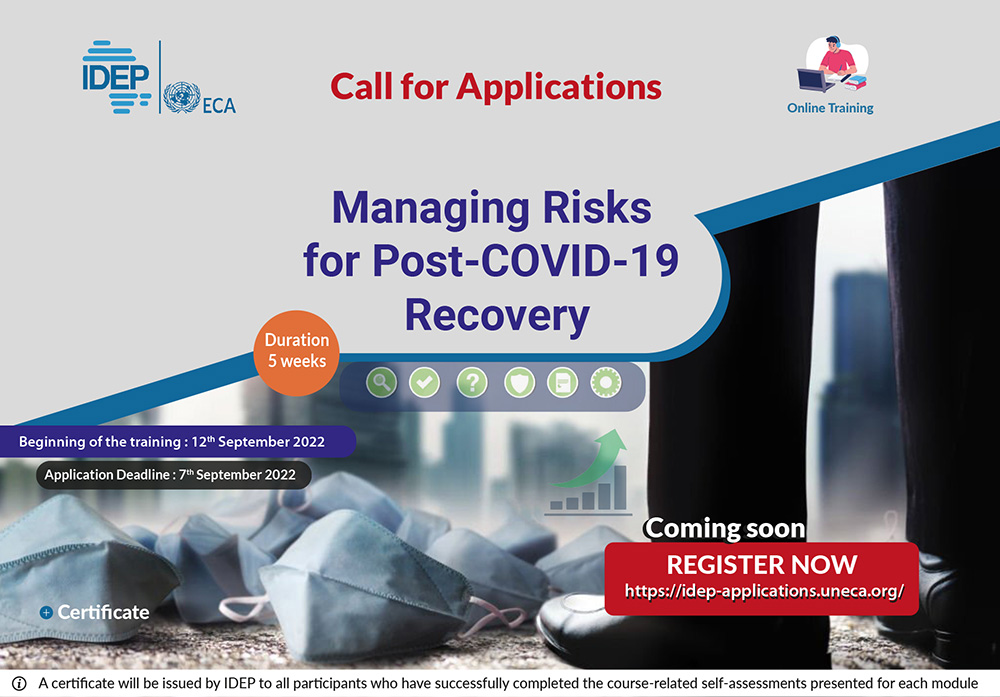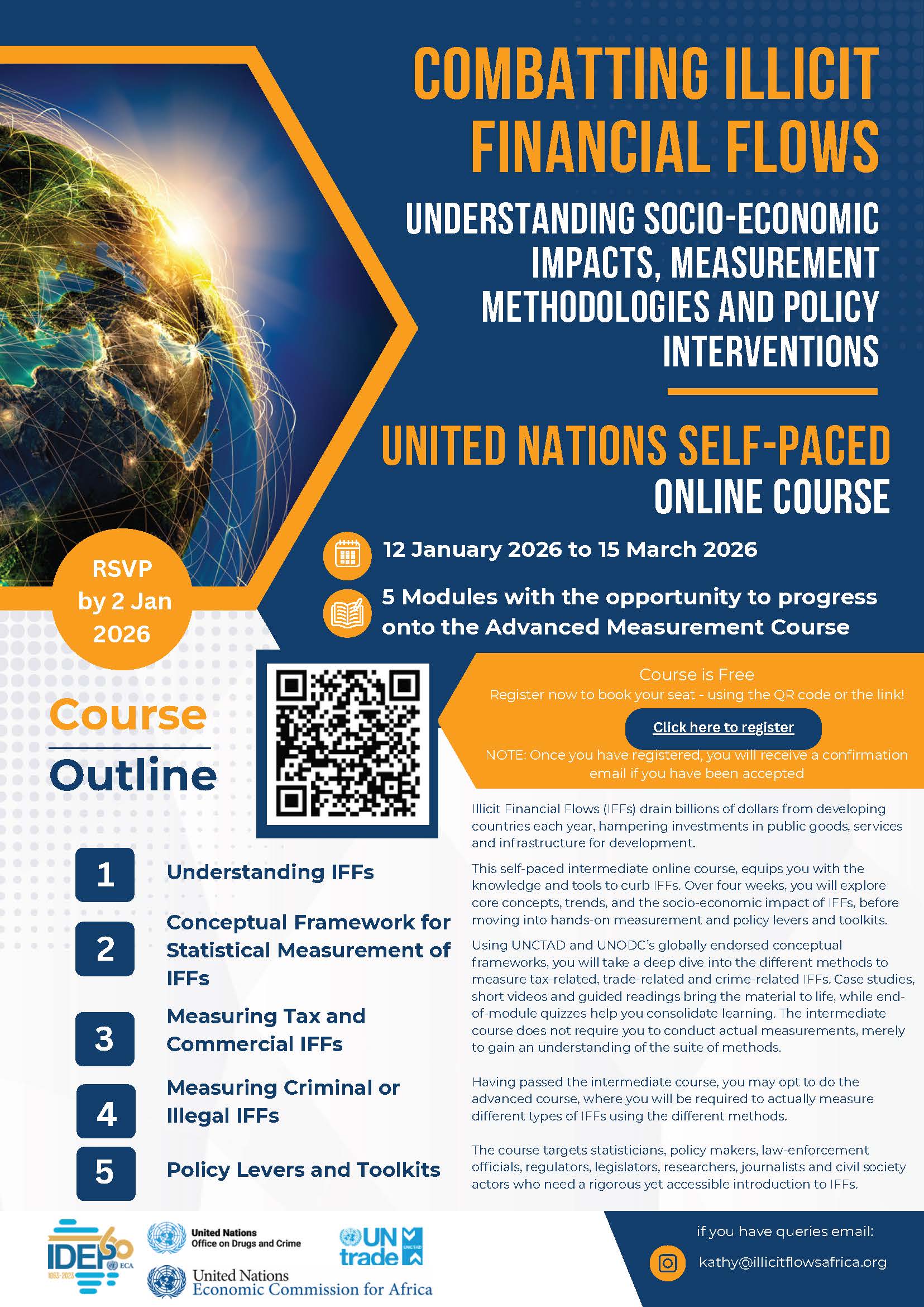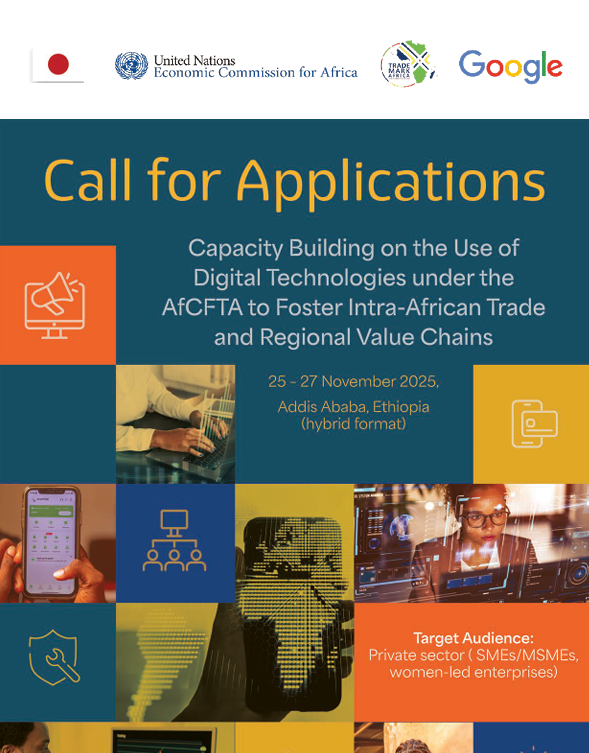Managing Risks for Post-COVID-19 Recovery
Announcement in Brief
|
Programme Rationale
When the pandemic situation surfaced, all of a sudden there was a state of confusion. Business Continuity Plans / Disaster recovery programmes in place could not give clear directions as there was no past experience available for this magnitude of disruption.
The COVID-19 pandemic, while in the first instance a public health crisis, has triggered a disaster with social and economic consequences on an unprecedented global scale. It concretely demonstrates the systemic nature of risk that contemporary societies face, and the potential for cascading negative effects across systems.
Objectives
The overarching objective of the course is to provide middle and senior level officials and decision makers with the necessary skills, tools and mechanisms to understand the interconnected nature of risk in a globalized world; perform risk assessments and analysis, implement effective risk management; respond to the ongoing pandemic by addressing the social impact and economic response and supporting preparedness and recovery efforts.
By the end of the capacity-enhancement training programme, the participants are expected to have acquired :
- A good understanding of the interconnected nature of risk today with its cascading negative effects across different sectors;
- Ability to perform multi-hazard and multi-sector risk assessments and analysis, including biological hazards and risks such as epidemics and pandemics. Decisions taken after appropriate evaluation are instrumental in determining how much harm a risk can ultimately cause;
- Develop equitable and inclusive risk management strategies that are linked to coherent planning and financing mechanisms in order to achieve effective implementation;
- An improved knowledge of the concepts of Risk, Uncertainty and Vulnerability and the links between them with concrete examples from the COVID-19 pandemic;
- Better risk mitigation strategies that can reduce the potential impact of shocks; ensuring preparedness for other unexpected future events and strengthening resilience against future shocks to build forward better post-COVID-19.





